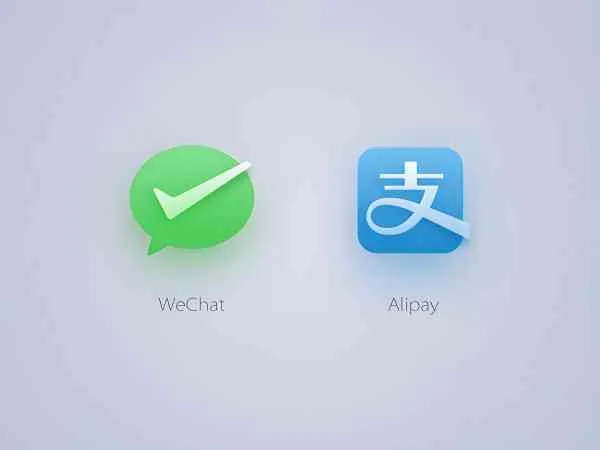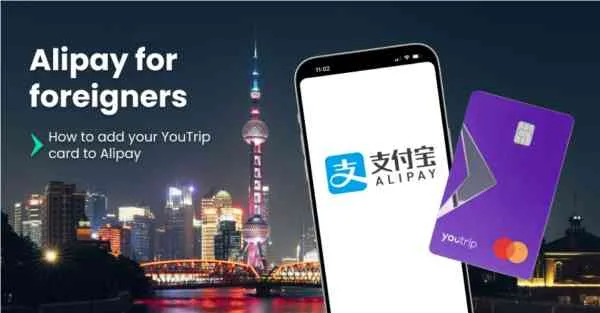1. Dive into China’s Mobile Payment Scene in 2025
In 2025, mobile payment has firmly established itself as the dominant payment method in China. China Mobile Payment systems such as Alipay and WeChat Pay have transformed daily life, covering a wide range of scenarios from buying a cup of coffee to paying utility bills. According to the People’s Bank of China, the transaction volume of mobile payments in China reached an astonishing 555 trillion yuan in 2023, and this figure is expected to keep growing.
For international visitors, understanding how to use these payment methods is crucial for a seamless experience. Whether you’re shopping in bustling malls, hailing a ride, or dining out, mobile payments offer convenience and security. In big cities like Beijing and Shanghai, it’s rare to find a store that doesn’t accept Alipay or WeChat Pay. Even street vendors selling snacks or handicrafts have adopted these mobile payment methods, making transactions quick and hassle – free.

2. Getting Started: A Step – by – Step Guide for Registration and Setup
2.1 Signing Up for Alipay and WeChat Pay
The first step to enjoying the convenience of Chinese mobile payment is to sign up for Alipay and WeChat Pay.
Using Overseas Phone Numbers is a breeze. You can register for both Alipay and WeChat Pay using your overseas mobile number. The process is straightforward and can be completed within minutes. Just download the apps from your app store (Alipay from the App Store or Google Play, and WeChat Pay from the same platforms), and look for the “Register” option. Enter your phone number, and you’ll receive a verification code via SMS. Once you enter the code, you’re one step closer to having your account.
Identity Verification is a crucial part of the process. You need to provide your passport for identity verification. This ensures the security and legitimacy of your account. In the apps, there will be a section for identity verification. Upload clear photos of your passport pages as required, and wait for the verification to complete. This usually doesn’t take long, and once approved, you can start using the basic functions of the apps.
Although it’s not mandatory, having a Local Bank Account Option can offer more flexibility and additional features. If you have a local Chinese bank account, you can link it to your Alipay or WeChat Pay account. This allows for easier and faster fund transfers, and you may also be eligible for certain local – only promotions and services. However, even without a local bank account, you can still use the apps by linking your overseas credit or debit cards.
2.2 Linking Overseas Credit or Debit Cards
Alipay and WeChat Pay support major international card brands like Visa and Mastercard, making it convenient for international users.
The seamless binding process is user – friendly. Follow the simple instructions in the apps to link your card. In most cases, the binding process can be finished in just a few steps. In Alipay, go to the “Wallet” section and click on “Add Bank Card”. Enter your card details, including the card number, expiration date, and CVV code. You may also need to verify your card through a one – time password sent to your registered mobile number.
WeChat Pay has a similar process. Navigate to the “Me” tab, then click on “Wallet” and “Bank Cards”. Add your card information as prompted. Once your card is successfully linked, you can start making payments right away. Whether you’re shopping at a high – end department store in Shanghai or buying a snack from a street vendor in Beijing, you can simply scan the QR code and choose to pay with your linked card.
3. Top – notch Features and Unbeatable Advantages
3.1 Real – time Currency Conversion
One of the great benefits of using these mobile payment apps is real – time currency conversion. You don’t have to worry about calculating exchange rates manually. The apps will automatically convert the local currency to your home currency, and the exchange rates are often more favorable than those offered by banks.
For example, if you’re an American tourist in Shanghai and you want to buy a souvenir worth 200 yuan, Alipay or WeChat Pay will instantly show you the equivalent amount in US dollars based on the real – time exchange rate. This not only saves you time but also ensures that you’re getting a fair deal. In contrast, traditional banks may charge high fees for currency conversion, and their exchange rates are often less competitive. With Alipay and WeChat Pay, you can be confident that you’re getting the best value for your money.
3.2 Extensive Merchant Coverage
Big Cities and Tourist Spots: In major cities like Beijing, Shanghai, and Guangzhou, as well as popular tourist destinations, you’ll find that most merchants accept Alipay and WeChat Pay. Look for the familiar logos at the checkout counter. Whether you’re shopping for high – end fashion in Shanghai’s Nanjing Road, buying local handicrafts in Beijing’s Wangfujing, or enjoying a delicious meal at a restaurant in Guangzhou, you can simply scan the QR code and complete the payment within seconds. In fact, in some popular tourist areas like the Forbidden City in Beijing or the Bund in Shanghai, the acceptance rate of these mobile payment methods is close to 100%. This means you can explore these places without the hassle of carrying cash or worrying about finding an ATM.
Transportation: You can use these apps to pay for public transportation, including buses, subways, and ride – hailing services like DiDi. In many Chinese cities, you can simply use the app to scan a QR code at the subway entrance or on the bus to pay for your fare. This is much more convenient than buying tickets or using a transportation card. For ride – hailing services like DiDi, payment is seamless. Once you reach your destination, the fare is automatically deducted from your Alipay or WeChat Pay account, eliminating the need for cash transactions or even fumbling for your card. It’s a truly modern and convenient way to get around.
3.3 Enhanced Security Measures
Both Alipay and WeChat Pay employ advanced security features to protect your transactions. Biometric authentication methods such as fingerprint and facial recognition are used, and dynamic QR codes are generated for each payment, adding an extra layer of security.
Fingerprint and facial recognition are becoming increasingly popular as they provide a quick and secure way to authenticate payments. With just a touch of your finger or a glance at your phone, you can confirm a payment. This is much more secure than using a traditional password, as it’s nearly impossible for someone else to replicate your fingerprint or face. Additionally, the dynamic QR codes change every few seconds, making it extremely difficult for scammers to intercept your payment information. Even if someone manages to take a screenshot of your QR code, it will be invalid by the time they try to use it. These security features ensure that your money and personal information are well – protected, giving you peace of mind when using these mobile payment apps in China.
4. Overcoming Common Hurdles
4.1 Transaction Limit Adjustments
Previously, international users faced relatively strict transaction limits when using Alipay and WeChat Pay, which could be a significant inconvenience, especially for those with larger – scale transactions. However, in 2023, a major change occurred. The daily limit was increased to $5,000, and the annual limit was raised to $50,000. This adjustment is a game – changer as it can meet the needs of most users.
For example, if you’re an international businessperson in China attending a trade fair and need to make a relatively large – value purchase of samples or products, the new higher limits allow you to complete the transaction smoothly. Before this change, you might have had to go through multiple smaller transactions or find alternative, less convenient payment methods. These new limits make mobile payment more versatile and suitable for a wider range of scenarios, from high – end shopping sprees to business – related expenses.
4.2 Resolving Payment Rejection Issues
Payment rejections can be frustrating, but understanding the common reasons can help you quickly resolve the issue.
If your payment is rejected, one possible cause is an expired card. Cards have expiration dates, and if you attempt to make a payment with an expired card, the transaction will not go through. Always double – check the expiration date on your card before making a payment. Another common reason is insufficient funds. Ensure that you have enough money in your account or available credit on your card to cover the payment amount. Network problems can also play a role. A weak or unstable internet connection can disrupt the payment process, leading to a rejection. Try to connect to a stable Wi – Fi network or ensure that your mobile data connection is strong before attempting the payment again.
If you’ve checked all these aspects and the problem persists, don’t hesitate to contact customer support. Alipay and WeChat Pay have dedicated customer service teams ready to assist. They can help you identify and resolve more complex issues, such as problems with the payment system on their end or issues related to your account settings.
4.3 Handling Customer Service Enquiries
Both Alipay and WeChat Pay recognize the importance of providing excellent customer service to their international users. They offer multilingual customer support, which is a huge advantage for non – Chinese – speaking users.
You can reach out to them through the apps or their official websites. In the Alipay app, there’s usually a “Help” or “Customer Service” section where you can find answers to frequently asked questions or initiate a chat with a customer service representative. WeChat Pay has a similar setup. If you have questions about transactions, account security, or any other issues, the customer service team can provide detailed and helpful responses. They can also guide you through any processes, such as disputing a transaction or updating your account information. Whether you’re using the apps on your mobile device or accessing them from a computer, getting in touch with customer support is straightforward, ensuring that you’re never left in the dark when you encounter problems.

5. Future – proofing Your Mobile Payment Experience
5.1 Staying Updated with Policy Changes
In the dynamic landscape of China’s mobile payment ecosystem, staying abreast of the latest policy changes is of utmost importance. For instance, in 2024, the introduction of the “Tour Pass” program marked a significant step forward in simplifying the payment process for international tourists. This initiative, spearheaded by major payment platforms like Alipay, enables tourists to enjoy a seamless payment experience during their stay in China. By leveraging this program, travelers can bypass the traditional hurdles associated with currency exchange and payment methods, making their transactions as smooth as those of local residents.
To ensure you don’t miss out on such beneficial policy updates, it’s advisable to regularly check the official websites of Alipay and WeChat Pay. These platforms often release detailed announcements regarding new policies, features, and updates. Additionally, subscribing to their official newsletters or following their social media channels can provide you with real – time information. For example, Alipay frequently posts updates on its official Weibo account, notifying users of new policy – related changes, such as adjustments to transaction limits or new payment – related services.
5.2 Embracing Emerging Technologies
Contactless Payments: As technology continues to evolve, contactless payment methods are rapidly gaining popularity. With the advent of near – field communication (NFC) and other advanced wireless technologies, you can now make payments with just a tap of your mobile device. This eliminates the need to physically hand over your device to the merchant, reducing the risk of damage or theft. For example, many subway stations in Chinese cities now support contactless payments. You can simply hold your mobile device near the turnstile, and the fare will be automatically deducted from your Alipay or WeChat Pay account. This not only speeds up the boarding process but also offers a more hygienic payment option, especially in the post – pandemic era.
AI – powered Security: In an era where digital security is paramount, AI – powered security systems are playing a crucial role in safeguarding your mobile payment transactions. These advanced systems use machine learning algorithms to analyze your payment behavior patterns. If they detect any unusual activity, such as a large – value transaction from an unfamiliar location or a sudden change in your spending habits, they can immediately flag the transaction and take preventive measures. For example, if the AI system notices a payment attempt from a location that is significantly different from your usual transaction locations, it may require additional authentication, such as sending a verification code to your registered mobile number. This proactive approach ensures that your transactions are secure, giving you peace of mind when using Alipay and WeChat Pay.
5.3 Planning for Cross – border Usage
If you have plans to use Alipay and WeChat Pay for cross – border transactions, it’s essential to have a clear understanding of the associated fees and regulations. Different countries and regions may have varying fee structures and regulatory requirements. For example, when making a cross – border payment from China to the United States, there may be a currency conversion fee, as well as a transaction processing fee. These fees can vary depending on the payment amount and the specific agreement between the payment platform and the financial institutions involved.
To make the most of your cross – border transactions, keep an eye out for special promotions and partnerships. Payment platforms often collaborate with banks and other financial institutions to offer exclusive deals to users. For instance, Alipay may partner with a particular bank to provide reduced – fee cross – border transactions for a limited period. By taking advantage of such promotions, you can save a significant amount of money on your international transactions. Additionally, some platforms may offer loyalty programs or cashback incentives for cross – border payments, further enhancing the value for users.
6. Pro Tips for Americans and Europeans
6.1 Utilizing Local Partnerships
In 2024, Alipay and WeChat Pay formed partnerships with local banks in Europe and the US. These partnerships offer exclusive discounts and benefits to users, so be sure to take advantage of them. For example, in the US, Alipay partnered with a major local bank, and cardholders of that bank can enjoy a 10% discount on purchases at certain Chinese – themed restaurants in major cities like New York and Los Angeles when using Alipay. In Europe, WeChat Pay joined forces with a well – known European bank, and users can get cashback rewards when shopping at popular European fashion brands that have recently started accepting WeChat Pay. By staying informed about these partnerships through the official apps or local bank announcements, you can make the most of your mobile payment experience and save money while enjoying various products and services.
6.2 Combining with Travel Apps
Integrate Alipay and WeChat Pay with popular travel apps like Ctrip and Meituan. This allows you to book flights, hotels, and restaurants directly through the apps and pay seamlessly. Ctrip, one of China’s leading travel platforms, offers a wide range of travel options, from domestic flights within China to international flights. When you book a flight or hotel on Ctrip, you can choose to pay with Alipay or WeChat Pay at the checkout. The process is quick and secure, and you can also earn loyalty points or enjoy special travel – related promotions. Meituan, on the other hand, is great for finding local restaurants, street food stalls, and even booking local tours. Linking your Alipay or WeChat Pay to Meituan means you can easily pay for your food orders, whether it’s a delivery or dining – in, and also explore unique local experiences with just a few taps on your phone.
6.3 Offline Payment Alternatives
Although mobile payments are widely accepted, it’s always a good idea to carry some cash or a backup card, especially when visiting smaller towns or rural areas where mobile payment infrastructure may not be as developed. In some remote villages in China, while the younger generation may be quick to adopt mobile payment, older shopkeepers or vendors may still prefer cash transactions. If you find yourself in such an area and want to buy some local handicrafts or fresh produce from a small market, having cash on hand will ensure you don’t miss out on the opportunity. Additionally, in case of unexpected network outages or technical glitches with your mobile payment apps, a backup card like a Visa or Mastercard can be a reliable alternative. It’s all about being prepared for any situation during your travels in China.
Conclusion
In 2025, the barriers for Americans and Europeans to use Alipay and WeChat Pay in China have been significantly reduced. With the detailed guidance provided in this guide, you can smoothly register, link your cards, and start enjoying the seamless mobile payment experience that Chinese locals have long embraced.
The real – time currency conversion, extensive merchant coverage, and enhanced security features make these payment methods not only convenient but also reliable. Even when facing issues like transaction limits, payment rejections, or the need for customer service, there are clear solutions and support available.
Looking ahead, staying updated with policy changes, embracing emerging technologies, and planning for cross – border usage will ensure that you can continue to make the most of these mobile payment apps. By following the pro tips, such as utilizing local partnerships, combining with travel apps, and having offline payment alternatives, your time in China, whether for business or pleasure, will be even more enjoyable and hassle – free. So, don’t hesitate to take the plunge and start using Alipay and WeChat Pay during your next visit to China.


